This “Olive Signature” Blu-ray release from Olive Films (www.olivefilms.com – www.facebook.com/olivefilms) will be available for purchase on June 30th.
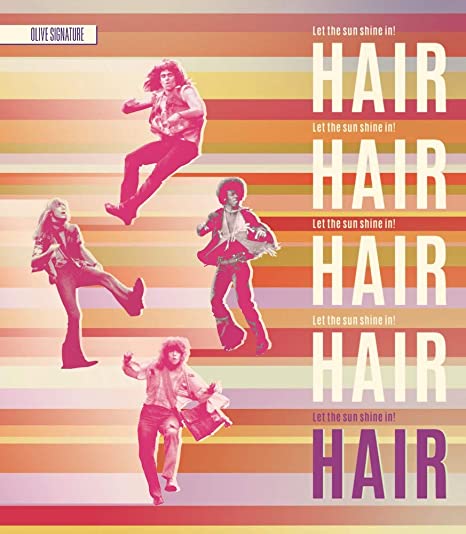
This week, Olive Signature are releasing another Blu-ray in their Signature line that focus on classics from decades past. Hair is a unique take on the hit Broadway musical. The movie adaptation, directed by the late, great Milos Forman (One Flew Over the Cuckoo’s Nest, Amadeus) was produced in 1979, just over a decade after the stage show’s debut when the counterculture movement had started to dissipate. The title was well received during its original release and grossed a small profit at the box office, but didn’t make as big a splash as hoped for (it seemed to be more popular to audiences outside the US). Over the years, more and more have come to appreciate the film. Olive’s extras-packed new Blu-ray includes a crisper image that allows the sets and costumes to pop, alongside features that detail in many respects, how ahead of the curve the movie may have been.
According to various sources, the original musical was something of a mood piece with little in the way of an actual story. In fact, it was more of an interactive experience, with performers coming into the audience and engaging with them, even inviting attendees to join the cast on stage during the final number. Obviously, Forman couldn’t do anything like that for the movie and fashioned a loose but efficient narrative to carry the characters through a few scenarios.
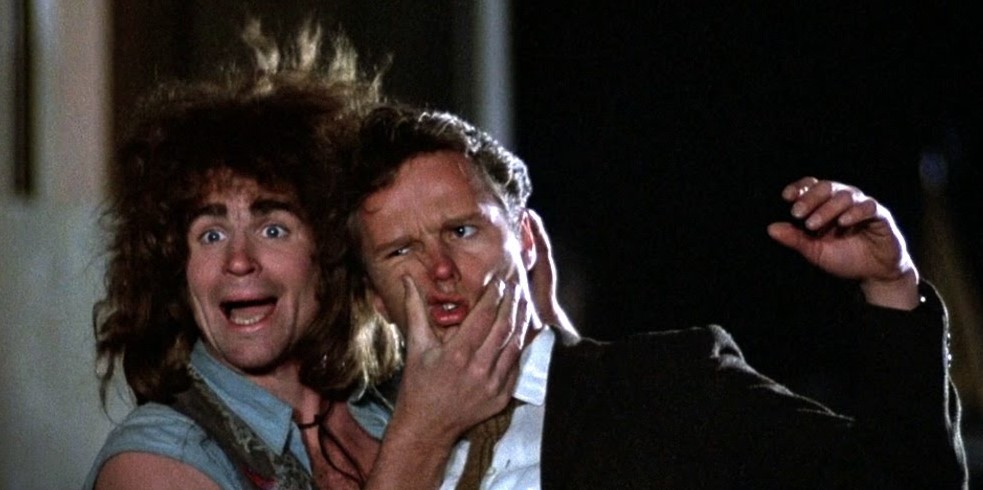
The story follows Claude Hooper Bukowski (John Savage) a young man from Oklahoma who enlists in the US Army and heads out to New York to begin his service term. After arriving in the big city, he encounters counter-culture hippie George Berger (Treat Williams) and his friends Hud (Dorsey Wright), Woof (Don Dascus) and Jeanne (Annie Golden). Despite Claude’s conservative background, the hippies quickly take him in and become friends with Claude. George leads the new arrival on a trippy, music and dance filled odyssey as they try to liberate his mind and body before he officially joins the military. They also try to set him up with the object of his affection, wealthy debutant Sheila (Beverly D’Angelo).
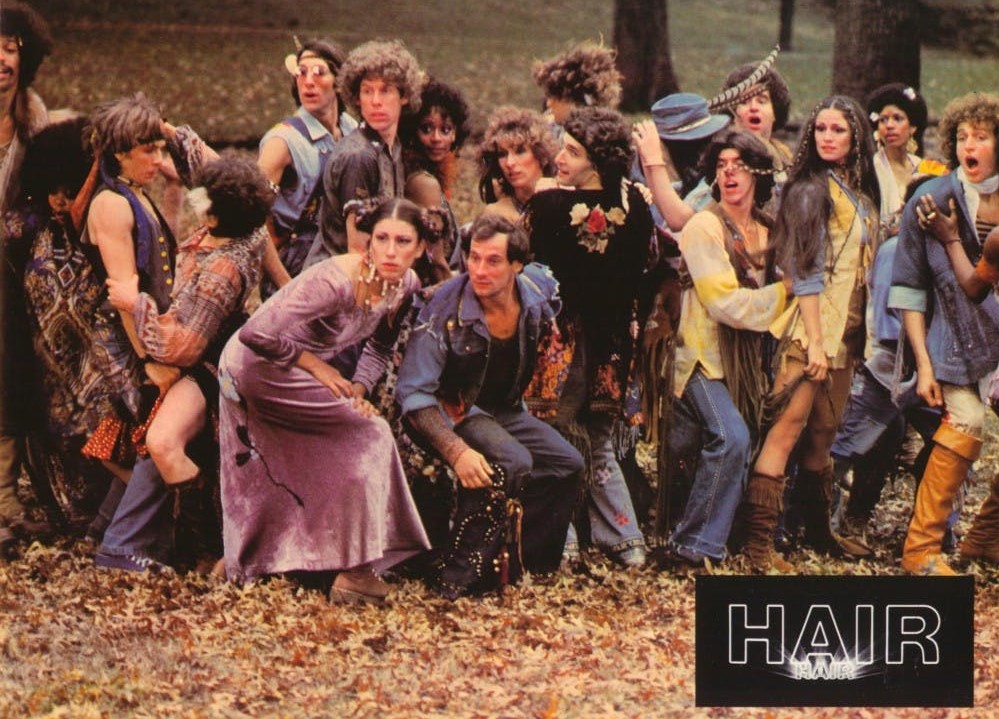
Even with a more detailed narrative, the plotting is still a little shaggy. Still, it works well enough and the music and performances are absolutely first rate. Younger viewers not entirely familiar with the show will discover some incredible tunes. While Forman chopped a few songs for pacing reasons, viewers still get the famous numbers, “Age of Aquarius”, “Let the Sunshine In” and “Hair” in addition to equally impressive renditions of songs like “Easy to Be Hard”. Nell Carter also appears and belts out a couple of great tunes. Actually, all the ditties are incredibly well-rendered. The cast appear on real locations alongside dancers who move in a free and almost improvised fashion (even though their performances were well choreographed). And there are a couple of unique creative performance ideas… including one bit performed atop a dinner table, and a pair of horses doing dance moves in Central Park.
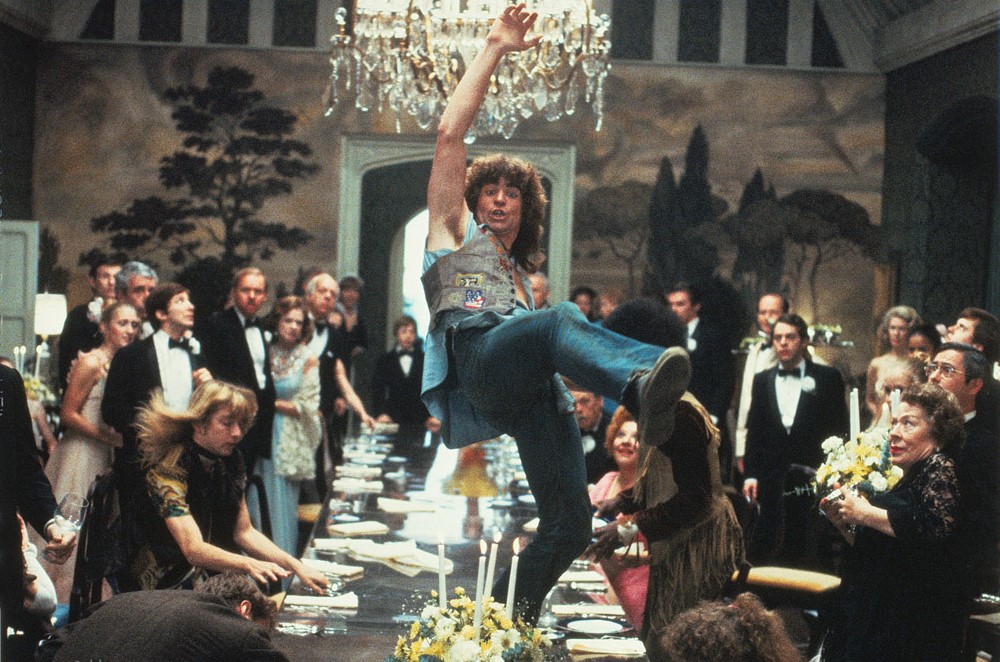
Interestingly, the director insisted that the cast perform the vocals themselves, and they are all more than up to the task. Everyone belts out the tunes with passion and verve. The filmmaker also isn’t afraid to show his leads, even the hippies, acting out and sometimes behaving badly. It is a movie that takes shots at the authoritarianism, the military and yearns for a more peaceful, jubilant and free way of life, yet he also isn’t afraid to show its counterculture heroes as deeply flawed and, at times, less than noble. There is a very funny scene in which Berger, leader of the movement, returns home to ask his confused immigrant parents for cash to continue his rebellious pursuits. Moments like these add another level of insight to the proceedings. The climax is also surprisingly moving, as the final events are also layered with a tinge of sadness about the movement’s failure and where the country ultimately ended up.
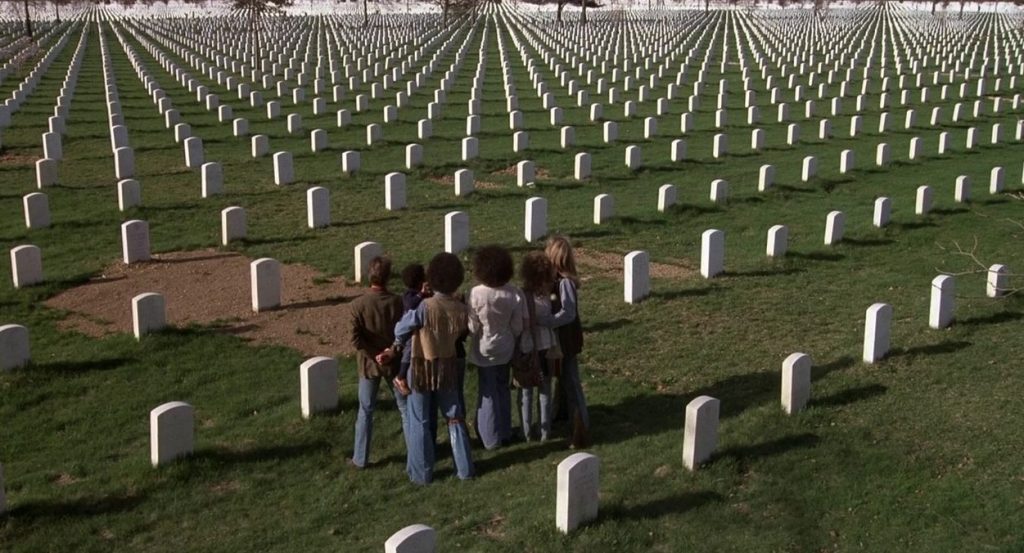
In the end, it’s a very good film that is well worth the time of enthusiast of movie musicals. The picture looks and sounds incredibly sharp from the moment the opening credits end and the locales change from the drearily-shot plains to a brighter and more colorful New York City. There’s also some remarkable footage of a large crowd in Washington towards the end of the picture that is powerful to behold.
Of course, the extras are also fun. There’s a commentary track featuring star Treat Williams and assistant director Michael Hausman. They share their experiences on set (the film was shot in the fall and winter and most of the cast and crew were chilled to the bone), Forman’s directorial style and also point out crew member cameos There’s also a funny story about the Washington finale, which features a large crowd celebrating together. Apparently, an outdoor concert was organized to entice a large group of attendees to appear on camera. The crew planned on filming the attendees approaching the stage. However, they didn’t expect the massive crowd to rush towards them as soon as the gates opened and had to hurry to get the cameras running. As such, just about every frame they managed to photograph wound up in the final cut. Overall, this commentary is a nice track, although the speakers often find themselves simply watching the film and commenting on what they see.
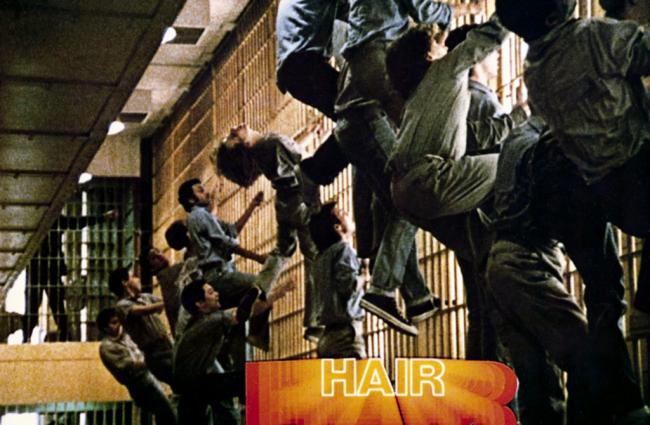
“The Tribe Remembers” is a new documentary on Hair that is very informative and goes into great detail about the production. Most state that Forman wasn’t a fan of visual effects and wanted to do everything live and in-camera. Instead, he was interested in finding accuracy in a story and as such would allow the performers to get into their parts character and behave as authentically as possible in order to create a believable, if somewhat exaggerated, environment. This would lead to some improvisation and unexpected, realistic spur-of-the-moment elements. Just about the entire main cast (with the exception of Williams, who recorded the commentary) appear in the doc.
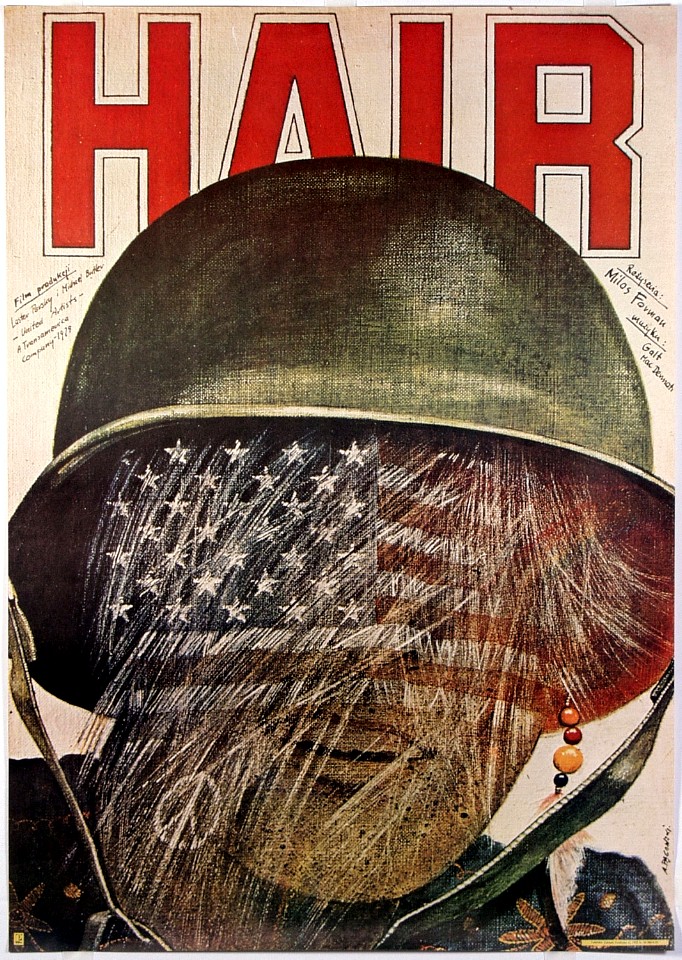
There’s also a featurette on the choreographer, Twyla Thorp, who was new to film at the time, but whose work is now considered influential in the field. There’s also a lengthy discussion with the editors, who describe their careers in detail and how they pieced together the filmed material until it came together in a zippy manner. In particular, they discuss the camerawork and editing utilized in the dance numbers, attempting to keep a feeling of wild spontaneity whenever possible. The production designer discusses how existing locations were used and sets were created, once again with an emphasis on getting minute details correct.
Finally, director James Mangold (Walk the Line, Logan, Ford v Ferrari) shares his experiences as a student of Milos Forman at Columbia University. Mangold talks about Forman’s distinctly European perspective and non-Hollywood approach to making movies and the filmmaker’s attempts to find truth and his use of deeper and more nuanced techniques to create his art. The guest speaker notes how underrated this particular film is and details his mentor’s working methods, quirky personality and how Forman served as an incredible inspiration to him.
While a few specific elements of the film are a bit out of date, there is a lot of about this movie that was ahead of its time and still resonates today. Hair is an impressive feature, and the new Blu-ray from Olive provides all sorts of interesting background information about the production and Forman himself. If you enjoy musicals, you can’t go wrong with this disc.


